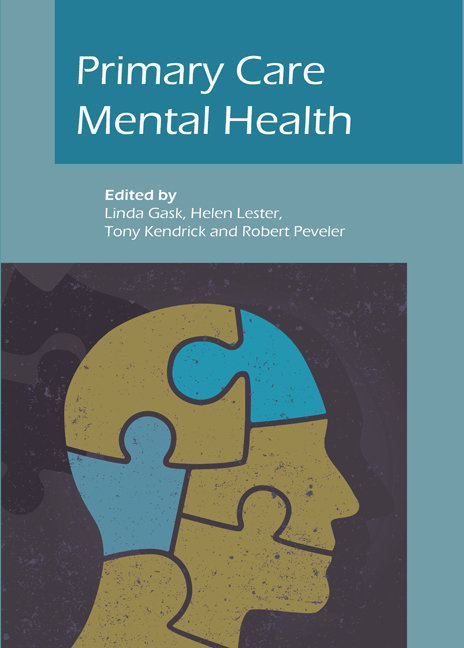Book contents
- Frontmatter
- Contents
- List of figures, tables and boxes
- List of contributors
- Preface
- Part I Conceptual basis and overarching themes
- 1 What is primary care mental health?
- 2 Mental health and primary healthcare: an international policy perspective
- 3 The epidemiology of mental illness
- 4 A sociological view of mental health and illness
- 5 The service user perspective
- 6 Low- and middle-income countries
- 7 Diagnosis and classification of mental illness: a view from primary care
- Part II Clinical issues
- Part III Policy and practice
- Part IV Reflective practice
- Epilogue
7 - Diagnosis and classification of mental illness: a view from primary care
from Part I - Conceptual basis and overarching themes
- Frontmatter
- Contents
- List of figures, tables and boxes
- List of contributors
- Preface
- Part I Conceptual basis and overarching themes
- 1 What is primary care mental health?
- 2 Mental health and primary healthcare: an international policy perspective
- 3 The epidemiology of mental illness
- 4 A sociological view of mental health and illness
- 5 The service user perspective
- 6 Low- and middle-income countries
- 7 Diagnosis and classification of mental illness: a view from primary care
- Part II Clinical issues
- Part III Policy and practice
- Part IV Reflective practice
- Epilogue
Summary
Differences between mental health and illness, and what is considered normal and abnormal in psychological terms, are perhaps not so easily determined in mental healthcare as in physical medicine. The term ‘mental illness’ is generally used in psychiatry when a clear syndrome can be identified and there has been a definite change from how the person used to be (which is important in differentiating illness from ‘personality disorder’, which is not viewed as ‘illness’) and there is a deterioration in the person's ability to function effectively. Dependence on alcohol or drugs is similarly not viewed as being mental illness but, again, mental health services are involved in treatment in order to attempt to relieve suffering, as experienced by either the persons themselves or those around them. Various different models of mental illness and health exist (Table 7.1). The biological perspective is often that to which a medically trained individual can particularly contribute. However, the psychological, social and spiritual perspectives are equally important in fully understanding the causes of a person's problems, what investigations to carry out and what treatment is required.
Diagnosis was, in the past, considered within psychiatry to be useful only if it conferred some utility, such as being able to predict what treatment would be indicated or predict response to treatment or prognosis (Kendell, 1975). In practice, categorical diagnoses continue to have practical utility in making simple treatment decisions, but they also have their limitations. In recent years, the need for more standardised approaches to diagnosis, driven by both research and billing requirements in some healthcare systems, has resulted in classification systems encompassing an ever-increasing variety of human experiences; for example, ‘tobacco use disorder’ and ‘pre-menstrual dysphoric disorder’ (PMDD) both appear in the US classification DSM–IV (the fourth edition of the Diagnostic and Statistical Manual of the American Psychiatric Association, 1995). Outside the USA, the World Health Organization's International Classification of Diseases (in its 10 revision, ICD– 10, World Health Organization, 1992) is more generally used, and in some countries (notably the Netherlands, Belgium and Denmark) its International Classification of Primary Care (ICPC) is used in the primary healthcare setting (in its second revision, ICPC–2, World Health Organization, 2003). While the ICD and DSM have some notable differences, their criteria for specific diagnoses such as major depressive disorder (MDD) are quite similar.
- Type
- Chapter
- Information
- Primary Care Mental Health , pp. 88 - 104Publisher: Royal College of PsychiatristsFirst published in: 2017



